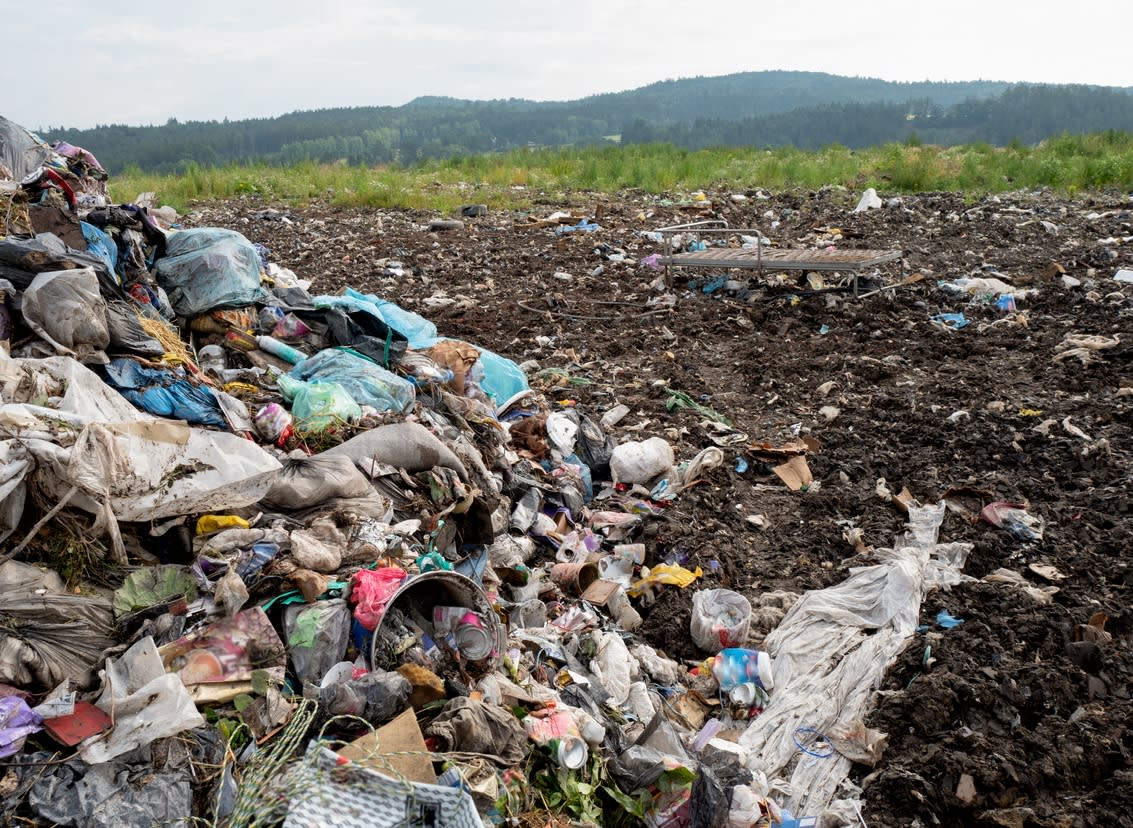Woman vindicated after years of dealing with trash heap dumped illegally near her home

- Oops!Something went wrong.Please try again later.
A Cultus Lake, British Columbia, resident was rejoicing in July when the garbage trucks started arriving at a trash heap near her property.
According to reporting by CBC News, the trucks marked the next step for D’Arcy Henderson in removing heaps of garbage that were dumped near her home — reportedly breaking government laws — more than a year ago.
“Vindication” was how Henderson described her feelings to CBC News.
The garbage was deposited on a nearby farmer’s property by Fraser Valley Renewables (FVR), a recycling, compost, and waste company. Henderson and other residents feared the pile could impact the local water table, especially after they noticed plastic and other refuse, CBC reported. She is pictured in the CBC story holding plastic waste that blew onto her property.
FVR told CBC early this year that the compost was part of a project to boost nutrients in the farmer’s dirt. The plastic and other unwanted trash were to be filtered out.
“We process local municipal organic waste, grocery and restaurant waste, and yard waste to produce renewable natural gas and high-nutrient compost,” according to FVR’s website.
On the surface, the concept seems like a good one. A paper from the journal Foods, posted by the National Library of Medicine, estimated that there’s around $2.6 trillion worth of food wasted each year worldwide. Composting can be a great way to use the food scraps.
But, when government officials arrived and tested what the company left at the Cultus Lake site, they found unacceptable amounts of plastics, wood, and other forbidden garbage, per CBC.
The result was a government order for FVR to get the trash heap in compliance by covering it with tarps “to prevent runoff” and eventually removing the piles, CBC reported. A photo published by CBC shows workers atop a mountain of garbage with blue tarps. Heavy equipment is pictured in the background.
“The outcry from the community clearly indicates that this is something that is not wanted,” local elected official Taryn Dixon said at a public meeting.
Officials estimate that there are more than 15,800 tons of trash to be removed. Troublingly, the area’s Agricultural Land Commission officials told CBC that the agency doesn’t know where the garbage is going. But it can’t go to another similar site, per the report.
Henderson was optimistic about a speedy removal of the piles as of the time of the CBC story’s publication. She also hopes that this Cultus Lake event will provide precedent for the removal of future heaps of a similar nature.
“I hope if nothing else, there’s a template now, for other communities because let’s face it — this product is going to continue to be produced, and it has to go somewhere,” she said to CBC News.
Join our free newsletter for cool news and actionable info that makes it easy to help yourself while helping the planet.

